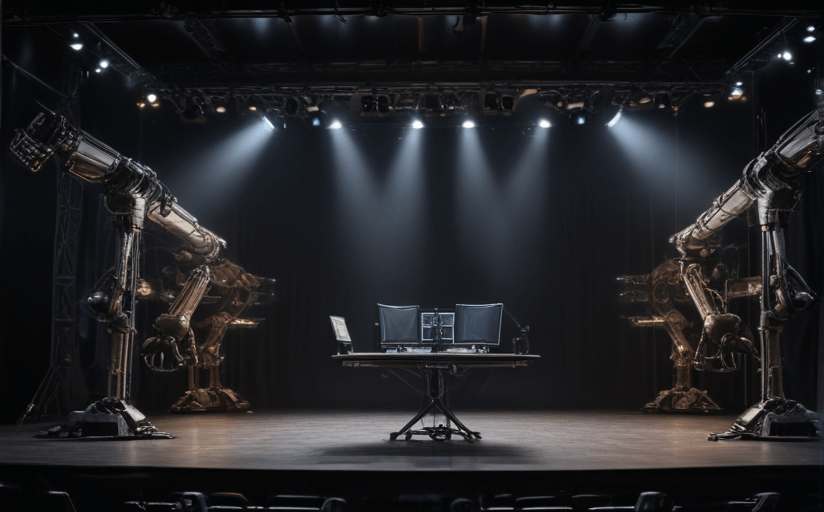The Influence of Artificial Intelligence in Modern Theatre Production
Artificial Intelligence (AI) has made significant waves across various industries – from finance to healthcare, and now, to the captivating world of theatre. AI's influence in transforming theatre production in ways previously unimaginable merits in-depth exploration. Its infusion across scripting, set design, costume design, lighting, sound, and even acting, signals a radical shift in the traditional ways of theatre production.
AI and Scriptwriting
AI has been harnessed to generate scripts using predictive algorithms. IBM's AI Watson created a screenplay - Eclipse for the Sci-fi London 48-Hour Film contest, breaking the boundaries of conventional scripting. Notably, AI systems don't intend to replace human playwrights but rather provide creative prompts for unique story constructions.
Set and Costume Design
AI has revolutionized set and costume design through augmented reality (AR) and virtual reality (VR) technologies. The Tempest by The Royal Shakespeare Company leveraged Intel's cutting-edge technology to create a lifelike, digitized Ariel, promising a novel experience for its audience.
Lighting and Sound
A tremendous portion of a play's atmosphere is attributable to its lighting and sound. AI is instrumental in automating these aspects, accurately timing sound cues and light changes. The National Theatre's production of Network utilized innovative AI solutions to control lighting and sound effects in real-time, enhancing the immersive experience.
Acting and AI
AI's role extends to acting – actors can interact with AI characters, creating dynamic performances each show. Tokyo University researchers developed an AI actor, delivering powerful performances alongside its human counterparts in a rendition of SAYONARA.
Benefits and Challenges
AI comes with multiple benefits, including reducing manual operations, automating sophisticated lighting and sound cues, contributing to cost-effective productions, and providing novel theatrical experiences. Nonetheless, it also poses challenges, especially in striking a balance between technology and preserving the human touch intrinsic to theatre.
The Future of AI in Theatre
As AI continues to evolve and integrate with theatre, it promises exciting possibilities. Future advancements might include deeper audience engagement through personalization and enhanced interactive experiences, more creative storylines, and innovative performance techniques. AI may even pave the way for virtual performers, providing unprecedented flexibility and convenience in theatre productions.
Conclusion
AI's infusions in theatre production mark a significant shift from traditional methods, offering fresh and exciting experiences for audiences. While challenges persist, the fusion of AI and arts can break boundaries, redefine norms, and chart a new path for the future of theatre industry.



















Comments
Leave a Comment